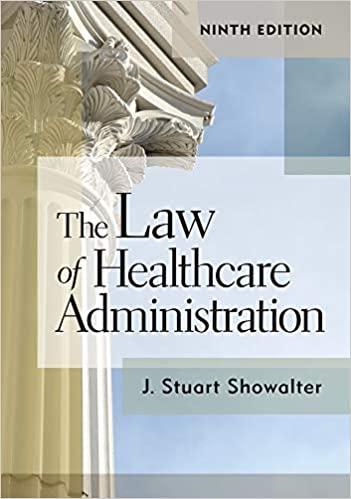Question
1. Leung was in serious financial difficulties. She owed $150 000 to Desert Rose Inc., in respect of a business venture. She also owed $100
1. Leung was in serious financial difficulties. She owed $150 000 to Desert Rose Inc., in respect of a business venture. She also owed $100 000 to Kwan. She entered into an agreement with Kwan whereby she sold her house to Kwan for $500 000, which was approximately its fair market value. The debt of $100 000 was set off against the purchase price, and it was further agreed that Kwan would lease the house back to Leung for a period of two years at a rent of $30 000 a year. That sum of $60 000 was also set against the purchase price. The balance of $340 000 was paid on completion of the transfer and was mostly used by Leung to pay off debts to her other creditors. When Desert Rose sought to collect the debt owed to it, Leung was unable to pay. Does Desert Rose have grounds for impugning the transaction between Leung and Kwan?
2.
Buckhouse Inc. is the owner of a large office building in the downtown area of a major Canadian city. It entered into a 10-year lease, at a monthly rental of $8000, with Justitia Ltd. As an inducement to enter into the lease, Buckhouse granted Justitia an 18-month rent-free period, a leasehold improvement allowance of $100 000, and a cash payment of $150 000. Justitia Ltd. is a corporation formed by two lawyers, Straight and Narrow, as a management company for their law practice. Straight and Narrow are the sole shareholders and directors of Justitia. The law practice occupied the premises for a period of 21 months, though Straight and Narrow never entered into a written lease with Justitia Ltd. At the end of that period, with rent having been paid for only three months, they moved out of the building and found other premises. Justitia has ceased to pay rent to Buckhouse and, apart from the lease, has no assets. The inducement payment of $150 000 was paid out as a dividend to Straight and Narrow. Does Buckhouse have any claim against Straight and Narrow?
3.
Yorkville Construction Inc. was the main contractor on a large construction project on land owned by Mayfair Properties Ltd. Yorkville engaged Rodwell Ltd. to provide piping insulation services for the project. Yorkville received a series of payments from Mayfair under the contract and used all the monies to pay its general overhead expenses, including advertising and promotion expenses, bank charges, insurance, lease payments on its vehicles, office rent, and utilities. It did not pay Rodwell for its work. Yorkville became insolvent. Does Rodwell have any claim against (a) Mayfair or (b) the directors of Yorkville?
Step by Step Solution
There are 3 Steps involved in it
Step: 1

Get Instant Access to Expert-Tailored Solutions
See step-by-step solutions with expert insights and AI powered tools for academic success
Step: 2

Step: 3

Ace Your Homework with AI
Get the answers you need in no time with our AI-driven, step-by-step assistance
Get Started


